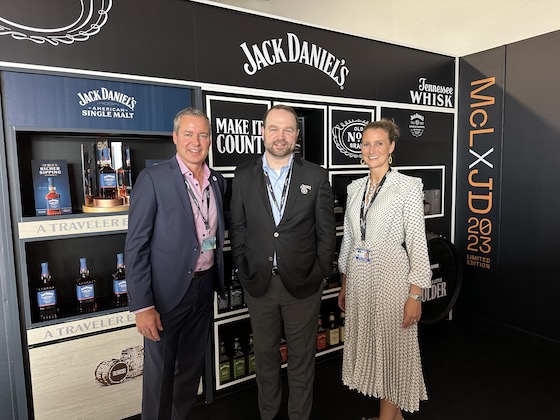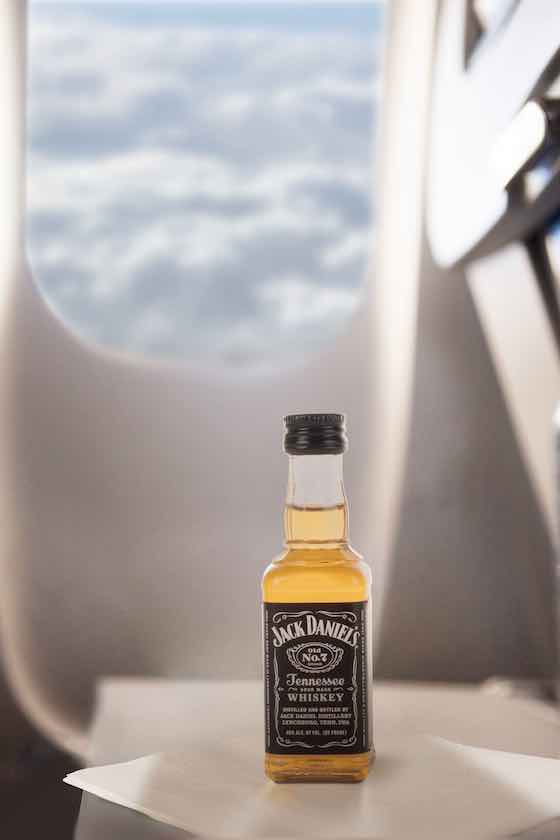Sustainability has always been an important focus for Brown-Forman and its flagship brand Jack Daniel’s.
Climate action, water stewardship, circularity, sustainable packaging, sustainable agriculture, and sustainable forestry all play key roles in the process of bringing the Brown-Forman spirits to market.
Jack Daniel’s Master Distiller Chris Fletcher tells TMI that the company’s sustainability efforts have roots going back to the 1990s when Jack Daniel’s started a partnership with the University of Tennessee to replant hardwood species within the state that were under distress.
“We focused on hard maple first, which is very important to Jack Daniel’s, as we then make charcoal out of it. Then white oak, which is critically important for American whiskeys, along with some black walnut. We started planting tree farms in the late 1990s,” says Fletcher.
“It takes decades for these trees to mature and to be able to produce acorns and things that can become seedlings. But it’s amazing to see these trees today.”
The company is committed to the conservation of the existing hardwood forests it depends on for its white oak barrels and sugar maple charcoal.

Reducing emissions with zero waste
Brown-Forman has also committed to reducing greenhouse gas (GHG) emissions across its owned operations and supply chain with the goal of halving its emissions by 2030 and becoming net-zero GHG emissions by 2045.
Jack Daniel’s is even making natural gas from its grains. The company is committed to zero waste and transforming the way it conducts business using circularity principles, designing out waste, and keeping products and materials in use.
“At Jack Daniel’s we’ve been zero waste for the last several years. At the distillery our grains had predominately been used for animal feed. However, we’ve just broken ground in the last few months and in 12 to 18 months will complete, an anaerobic digestion facility in Lynchburg. This will take the spent grains from the bottom of the still, which are non-fermentable, and pump them into the digester, where microbes will break down all of the organic material into methane natural gas. That gas will be captured, compressed, and pumped into a crude line where it will go out and be refined. So we will literally be making natural gas from the waste distilling. That’s a big one that we have on our radar,” says Fletcher.
.
Solar farm and watersheds
“Brown-Forman is also building a solar farm about eight miles from the distillery that will drop our energy usage by about 30 to 40%.”
Fletcher says Brown-Forman is committed to protecting the health of key watersheds in its communities, with the goal of ensuring that 100% of its high-risk and business critical watersheds achieve water balance by 2030.
“We now own about 3,000 acres in the county. Much of that is protecting the groundwater. And, of course, so we can have barrel houses to age our whiskey. We want to pull as little water out of that cave as possible. Several times over the years we have looked at a way of running the distillery on what we call a thicker mash. This will enable us to use less water per bushel of grain. To put it in perspective, back in the 1980s, we would have needed about 35 gallons of water from that cave for every one bushel of grain that we brought in. Now, we do about 23 gallons, we’ve reduced water use by over 30%.”
Sustainable packaging is already showing up in travel retail.
Late last year, Brown-Forman announced a new Jack Daniel’s Tennessee Whiskey 50ml bottle produced from 100% post-consumer recycled (PCR) plastic for airlines, representing a step forward in the company’s sustainability journey. The new 50ml bottle replaces the existing 15% PCR bottle across all U.S.-based airlines, beginning with Delta Airlines in late Summer 2023.
“The Jack Daniel’s 50ml 100% PCR bottle initiative is part of Brown-Forman’s broader commitments to environmental responsibility and highlights our ongoing efforts to reduce our environmental footprint and promote a circular economy,” said David Rodiek, Vice President, Managing Director Global Travel Retail, Brown-Forman.
This change in packaging is projected to reduce the annual use of first-use plastic material by up to 220 tons across all U.S. domestic transportation sales of Jack Daniel’s Tennessee Whiskey 50mls.
Additionally, the new airline-specific packaging will result in an estimated greenhouse gas (GHG) emissions reduction of 33% for the primary package when compared to the existing package.
Andy Battjes, Brown-Forman Director of Global Environmental Sustainability, Global Supply Chain and Technology, said: “Increasing the PCR content of our packaging is an important piece of Brown-Forman’s sustainable packaging strategy. We anticipate extending the use of 100% PCR plastic to other products and package formats in the future.”
.
B-F named a most ethical company
In addition to its sustainability efforts, Brown-Forman has been recognized by as one of the 2024 World’s Most Ethical Companies for the past three years.
The accolade comes from Ethisphere, a global leader in defining and advancing the standards of ethical business practices, and the assessment is grounded in Ethisphere’s proprietary Ethics Quotient, which requires companies to provide over 240 different proof points on their culture of ethics; environmental, social, and governance practices; ethics and compliance program; diversity, equity, & inclusion; and initiatives that support a strong value chain. That data undergoes further qualitative analysis by Ethisphere’s panel of experts who spend thousands of hours vetting and evaluating each year’s group of applicants.










